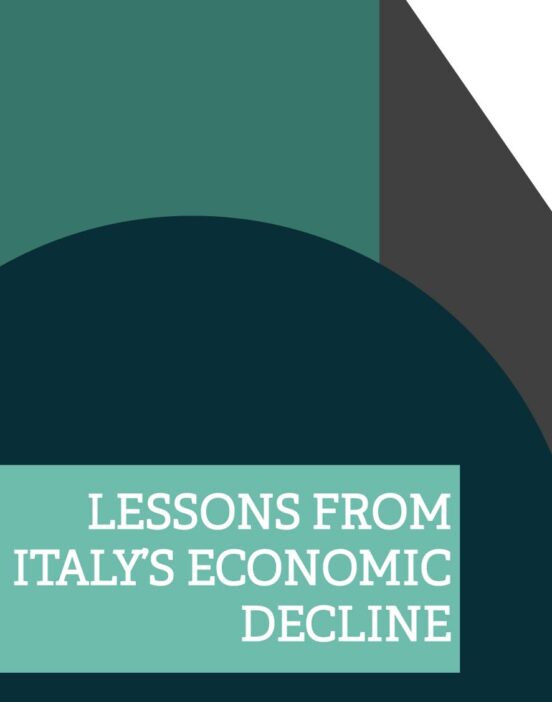Lessons from Italy’s economic decline

In this essay, part of our Navigating Economic Change series, Lorenzo Codogno and Giampaolo Galli provide a short history of Italy’s economic underperformance, before digging into the root of Italy’s growth problems, and exploring how some of Italy’s traps may become future challenges for the UK economy.
Summary
Italy has faced a series of economic crises in the past 50 years, many of them shared by the United Kingdom. There were inflation crises in the 1970s, public debt concerns in the 1980s and currency volatility in the 1990s. There were then four shocks in a row over the past fifteen years, i.e. the Global Financial Crisis (GFC), the sovereign debt crisis, the coronavirus pandemic and finally the inflation shock partly linked to the Russian invasion of Ukraine. These crises were opportunities to reform Italy’s economy. Yet, hopes have been repeatedly disappointed by the lack of policy delivery and as reforms were captured by lobbies and interest groups. This chapter first examines some stylised facts, then provides a short history of Italy’s economic underperformance, before digging into the root of Italy’s growth problems. Many factors are to blame: poor economic incentives, a large share of small and unproductive firms, a lack of domestic market competition, and policy capture. Some of Italy’s traps may become future challenges for the UK economy.
- Download a PDF of the full essay
- Read more from the Navigating Economic Change series
The Navigating Economic Change essays are written by a range of leading economists and national experts and reflect the views of the authors rather than those of the Resolution Foundation, the LSE or The Economy 2030 Inquiry.
They have been commissioned and edited by Gavin Kelly (Chair of the Resolution Foundation and member of the Economy 2030 steering group) and Richard Davies (Professor at University of Bristol and fellow at the LSE’s Centre for Economic Performance).